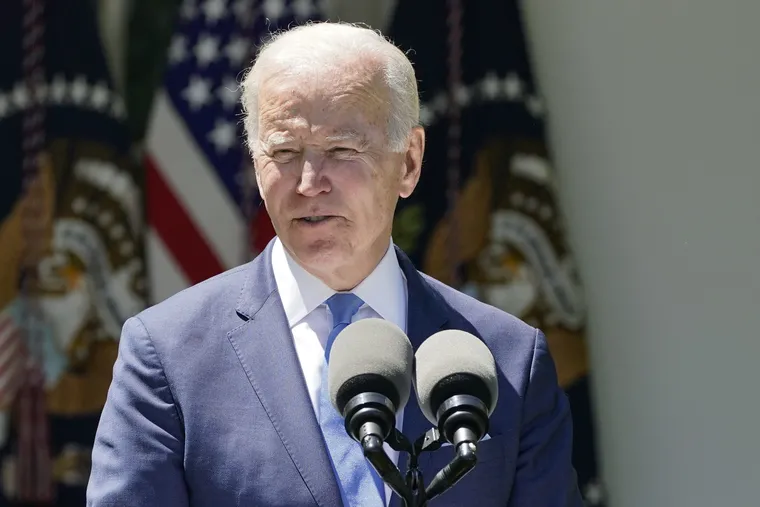WASHINGTON — President Joe Biden introduced Monday that 20 web corporations have agreed to offer discounted service to individuals with low incomes, a program that might successfully make tens of tens of millions of households eligible without spending a dime service via an already present federal subsidy.
“Excessive pace web isn’t a luxurious any longer. It’s a necessity,” Biden stated at a sun-drenched rose backyard occasion with representatives from taking part corporations, in addition to members of Congress.
The $1 trillion infrastructure package deal handed by Congress final 12 months included $14.2 billion funding for the Reasonably priced Connectivity Program, which offers $30 month-to-month subsidies ($75 in tribal areas) on web service for tens of millions of lower-income households.
With the brand new dedication from the web suppliers, some 48 million households will probably be eligible for $30 month-to-month plans for 100 megabits per second, or increased pace, service — making web service absolutely paid for with authorities help in the event that they enroll with one of many suppliers taking part in this system.
Biden famous that households of 4 incomes about $55,000 yearly — or these together with somebody eligible for Medicaid — will get a $30 month-to-month credit score, which means about 40 p.c of Individuals will qualify.
“It is a case the place large enterprise stepped up. We’re making an attempt to get others to do the identical factor,” Biden advised the gang to sustained applause. “It’s going to alter peoples’ lives.”
Advocates have been cautiously optimistic.
“It could be a game-changer,” stated Marty Newell, coordinator for Rural Broadband Coverage on the Middle for Rural Methods in Whitesburg, Kentucky, the place he stated sluggish web has plagued residents and companies alike.
Newell stated he needed to see extra about what this system will imply going ahead, however that his important query is — on condition that elevated broadband entry has usually been a bipartisan concern in Congress — “What took them so lengthy”
Biden, throughout his White Home run and the push for the infrastructure invoice, made increasing high-speed web entry in rural and low-income areas a precedence. He has repeatedly spoken out about low-income households that struggled discovering dependable Wi-Fi, so their youngsters might participate in distant education and full homework assignments early within the coronavirus pandemic, together with, he stated Monday, households driving to McDonald’s parking heaps to entry wi-fi web contained in the restaurant.
The 20 web corporations which have agreed to decrease their charges for eligible shoppers present service in areas the place 80% of the U.S. inhabitants, together with 50% of the agricultural inhabitants, stay, the president stated. Taking part corporations that supply service on tribal lands are offering $75 charges in these areas, the equal of the federal authorities subsidy in these areas.
Biden and Vice President Kamala Harris additionally met Monday with telecom executives, members of Congress and others to highlight the hassle to enhance entry to high-speed web for low-income households. The president stated a prime precedence going ahead will probably be growing competitors amongst web suppliers in lots of components of the nation, noting that tens of millions of Individuals stay in areas with only one supplier and at present pay increased costs due to it.
The taking part suppliers are Allo Communications, AltaFiber (and Hawaiian Telecom), Altice USA (Optimum and Suddenlink), Astound, AT&T, Breezeline, Comcast, Comporium, Frontier, IdeaTek, Cox Communications, Jackson Power Authority, MediaCom, MLGC, Spectrum (Constitution Communications), Starry, Verizon (Fios solely), Vermont Phone Co., Vexus Fiber and Wow! Web, Cable, and TV.
American households are eligible for subsidies via the Reasonably priced Connectivity Program if their earnings is at or beneath 200% of the federal poverty stage, or if a member of their household participates in one in every of a number of applications, together with the Supplemental Diet Help Program (SNAP), Federal Public Housing Help (FPHA) and Veterans Pension and Survivors Profit.
